
Do you have what you need to make your garden grow?


Garden Center
Store Hours
Mon-Sat:
6:00am - 10:00pm
Sun:
8:00am - 8:00pm
Curbside:
09:00am - 6:00pm
Location
Popular at Your Garden Center
Spring Garden Supplies
Explore Popular Spring Plants
Garden Project Calculators
;Resize=(703,395.44))
Grass Seed Calculator
When you're ready to seed your lawn, our calculator helps you estimate the amount of grass seed you'll need to get the job done.
;Resize=(703,395.44))
Mulch Calculator
Enter your preferred material, the square footage and mulch depth of the coverage space for accurate results.
;Resize=(703,395.44))
Fencing Calculator
We'll calculate the amount of fencing you should purchase based on your property needs.
Shop Outdoor and Garden Brands
Frequently Asked Questions About Gardening
Which planting zone am I in?
Check the USDA planting zone map, as planting zones have shifted slightly through the years. Planting zones with higher numbers can plant earlier in the year. Increase your odds of successful gardening by choosing plants that are meant for your zone.
What's direct sow in gardening?
If the ground isn't frozen solid and the soil isn't cold, consider planting your flower, fruit, or veggie seeds directly into your garden. This is called the "direct sow" method. The time to plant will be after the threat of frost is gone for the season, as seedlings and sprouts can't weather those conditions. You can also start your seeds indoors if you'd like. Consult your seed envelope for when and how to sow seeds.
Do you carry organic plants and seeds?
We offer many organic gardening options, including organic fruit seeds and veggie seeds, as well as organic flower and herb seeds that are subject to availability. We carry the organic soil to plant them in as well as the organic fertilizer to feed your plants.
Do I have to harden off my seedlings before planting them outside?
Yes, for best results, if you raised plants indoors from seeds in your own plant nursery, harden them before you transplant them. Hardening is the process of getting them used to outdoor life and the fluctuating spring weather. It slows their growth until they're strong and ready to take off during a spring warm front. Hardening also makes your plants more resilient to a sudden cold snap.
How do I plant a transplant or baby plant?
Squeeze the plastic around the plant to loosen the soil. Carefully coax the plug of dirt with the plant into your palm, then place it into the hole you dug for it. Make sure the top of your transplant's soil is even with the garden soil, and carefully press the earth into place. Avoid leaving the plant as an island with a moat around it, and don't tamp down the ground too tightly. Your plant baby needs to breathe.
What are seed tapes?
If you're dealing with extremely tiny seeds or want more guidance in planting, consider seed tapes. They're biodegradable pieces of paper with tiny seeds affixed at regular intervals. Just bury the tape and water as directed. If all goes well, your perfectly spaced sprouts will pop up soon.
Garden Project Ideas
The Home Depot Garden Center at Hickory Hill
Shop Our 2025 Spring Deals
Our big spring sale is back, so prepare to save. Sunny days make it easy to kick back in the spring air, and new tools help take care of that DIY list. Don't forget to upgrade your outdoor power equipment to keep your lawn and garden pristine. Get great Spring Deals from April 24th through May 7th, and enjoy your outdoor oasis as your garden and yard transform with the seasons.
Celebrate Springtime Gardening
It's time to start thinking of spring. Clean out the shed and sweep the gazebo to prepare for warmer temperatures, sprouts poking out of the ground, and fragrant breezes. Planting seeds indoors means you'll be ready to transplant spring flowers and young veggie plants when the ground thaws and the frosts are through. You might even want to plant seeds directly into the earth. What better way to start than by exploring your favorite local plant nursery, The Home Depot Garden Center in Hickory Hill?
Plant Hardiness Zones Explained
The first thing to learn when planting spring flowers, vegetables, and other seeds is your planting zone. Every location in the U.S. and its territories is sorted by climate. Find your zone on the USDA growing zone map and learn when to plant seeds.
For example, you could plant bell pepper seedlings outdoors in mid-March in Zone 10, but not until the end of May in Zone 4. The plants that'll thrive in your area are in your zone — plus all the zones numbered less than that. In other words, a Zone 5 garden can support plants listed as Zones 1–5. You can plant seeds indoors roughly a month before you can plant them outside, known as direct sow. Read your seed packet for details. If you start plants a little later than recommended, it's not ideal, but it will likely even out as time passes.
Gardening in Your Growing Zone
The Mid-South is in Zones 7–9, with coastal regions being warmest and the zone number decreasing to an 8, then a 7 as you go up in elevation to the foothills of the Georgia mountains. Just check your planting zone, then consult the seed packet for the most accurate instructions for each plant. If you know you're in a micro-climate near a mountain, valley, or lake, zoom in on the USDA planting map for exact details down to street level.
In balmy Zone 9 on the coast, you can begin planning and planting indoors in January if you'd like. Zones 8 and 7 generally have a slightly later recommendation for indoor starts. Cruciferous veggies and garden favorites, like cucumbers, peppers, and tomatoes, all do well when started inside your home. Greens like spinach, artichokes, and fragrant herbs, including basil, parsley, and oregano, also don't mind an early beginning. You can sow flower seeds and watch them mature under the grow lights, too. Whatever you choose to grow, tend them carefully and transplant them after the last frost.
Start Seeds Indoors
Grow your garden from seeds by starting them indoors in your own seedling garden. We've got all the seed starter supplies you'll need. For best results, you'll want warming lights or a warming mat to go with your seed tray or planters. If you're planting a larger garden, use seed trays — like the ones you see sprouts in at your Hickory Hill Garden Center — to stay organized and plant tiny soil plugs when the time comes. You can also use pots with seed starter mix and potting soil.
Measure your finger to use it as a ruler. In general, you'll plant 3–5 seeds, then press them into the soil to the depth you need with your finger. Mark where you planted the seeds with a toothpick or plant tag. That way, you'll know where your seeds should pop up. Otherwise, it'll be a surprise when the sprouts push out of the soil.
Sprouts
Prepare your seed sprouts for outdoor life while they're still indoors. These micro-seedlings are fragile — only an inch or so high, with the tiniest seedling leaf or two — but they're resilient. Seedlings don't get all this pampering in nature, so they can handle more than you think. However, don't go overboard, as your sprouts are still babies. You can even use an oscillating floor fan on low to mimic the wind and strengthen their stems.
Harden Your Seedlings
When you're hardening your sprouts and gradually introducing them to the outdoors, be flexible. Keep an eye on your baby plants. Bring them inside or move them to a shady spot if they're looking rough. As always, make sure they're watered just enough, but not too much. Take wilted plants inside and give them a good drink, making sure they're healthy before returning them outdoors.
Transplant Young Plants Into Their New Homes
By now, your plants have 3 or 4 real leaves — they'll look different from the miniature seedling leaves. When you're not expecting soaking rain, and the ground is warm, look into transplanting your small plants into their new outdoor home. These large seedlings that are ready to be planted can also be called "transplants" or sometimes "starts." In cases where you direct sowed, you may still want to shuffle plants around for the best spacing and sun. That's also a transplant situation, as is repotting plants into larger pots.
Protect Your Garden With Mulch
Finish your garden bed with mulch and compost. Compost enriches the soil so your garden can grow even better. It may help foster larger and stronger plants that bear more flowers and fruit. Mulch controls weeds and keeps the soil moist. Compost and mulch can be DIY creations, but you can also purchase them in-store. The next time you're looking for "mulch near me," stop by the Garden Center to get the right amount.
Greet the Spring
Don't miss a minute of growing season. Prepare to fertilize your lawn, plan your garden and landscaping, and browse The Home Depot nursery to find inspiration on which spring flowers to plant when the weather warms. For those without lawns, consider adding an outdoor rug, artificial grass, or a pellet grill to your patio or balcony. Shop for the fertilizer, seeds, and soil you need in the aisles of your Hickory Hill Garden Center, online, or on our mobile app. Let's get growing together.
Nearby Stores
Find Another Store
800 Truse Parkway
Memphis, TN 38117
5.13 mi
Mon-Sat: 6:00am - 10:00pm
Sun: 8:00am - 8:00pm
7740 Craft Goodman Rd
Olive Branch, MS 38654
6.14 mi
Mon-Sat: 6:00am - 10:00pm
Sun: 8:00am - 8:00pm
345 Market Blvd
Collierville, TN 38017
7.65 mi
Mon-Sat: 6:00am - 10:00pm
Sun: 8:00am - 8:00pm
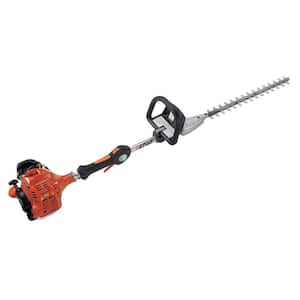
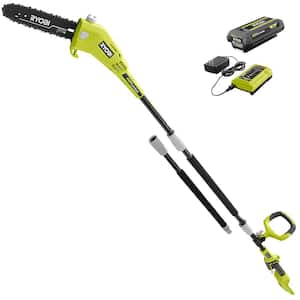
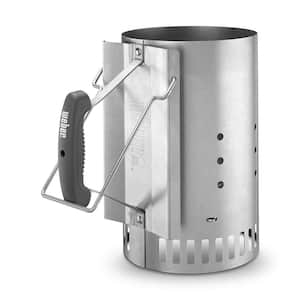
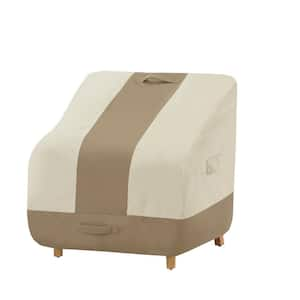
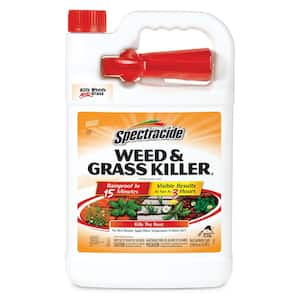
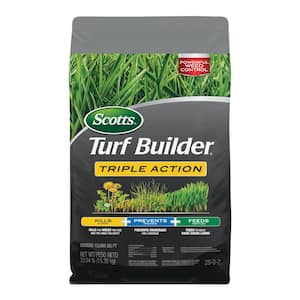
)
)
;Resize=(300,300))
)
)
/2023_P2_Rain_Barrels_Product%20Image%20(square).jpg?im=Resize=(300,300))
)
;Resize=(300,300))
)
;Resize=(300,300))
;Resize=(300,300))
;Resize=(300,300))
)
;Resize=(300,300))
/12_SOIL_B_0420_Social%20media%20(square).jpg?im=Resize=(300,300))
;Resize=(300,300))
;Resize=(300,300))
)
)
)
;Resize=(300,300))
;Resize=(300,300))
;Resize=(300,300))
;Resize=(300,300))
;Resize=(300,300))
)
;Resize=(300,300))
/18Patio_Camden_Seagrass_5pcSeating_Planters_302468736_DTL3_L_Social%20media%20(square).jpg?im=Resize=(300,300))
;Resize=(300,300))
;Resize=(300,300))
;Resize=(300,300))
;Resize=(300,300))
;Resize=(300,300))
)
)
)
.jpeg?im=Crop,rect=(363.69230769230774,1.2307692307692308,958.7692307692308,958.7692307692308);Resize=(300,300))
;Resize=(300,300))
;Resize=(300,300))
;Resize=(300,300))
)
)
;Resize=(300,300))
;Resize=(300,300))
;Resize=(300,300))
)
;Resize=(300,300))
)
)
)
)
;Resize=(300,300))
;Resize=(300,300))
)
;Resize=(300,300))
)
)
/Capello_Spring_Mum_10in_Social%20media%20(square).jpg?im=Resize=(300,300))
;Resize=(300,300))
)
)
;Resize=(300,300))
;Resize=(300,300))
)
)
)
)
)
;Resize=(300,300))
;Resize=(300,300))
;Resize=(300,300))











































